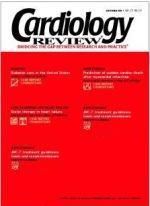Publication
Article
Air pollution triggers cardiovascular deaths
Long-term exposure to particulate air pollution is an important risk factor for cause-specific cardiovascular mortality. The likely mechanisms include pulmonary and systemic inflammation, acceleration of atherosclerosis, and alteration of cardiac autonomic function in response to particulate matter exposure, say the authors of a follow-up analysis of the most extensive study of its kind on the long-term effects of air pollution on human health.
“It is clear that long-term exposure to the levels of air pollution that Americans are routinely exposed to is a significant contributor to ischemic heart disease,” said George D. Thurston, ScD, associate professor of environmental medicine, New York University School of Medicine, and one of the study’s authors. “When we looked at the data, we observed that the increased risk of dying from some forms of heart disease among nonsmokers living in polluted cities is roughly comparable to the increased risk caused by being a former smoker.”
The new analysis, published in Circulation (2004;109[1]:71-77), is based on data collected by the American Cancer Society on the cause of death of about 500,000 adults from 1982 to 1998 and on data on pollution levels in 51 metropolitan areas nationwide. These data sets were also the basis for an earlier study that showed that breathing soot-filled air over many years significantly raised the risk of dying from lung cancer and heart disease.
In the most recent analysis, specific causes of death related to exposure to particles smaller than 2.5 µm in diameter were calculated. More than one half of all deaths in the study participants were attributable to cardiopulmonary disease, about 45% from cardiovascular disease and 8% from respiratory disease. The largest specific cause of death was ischemic heart disease; long-term particulate matter exposure increased the risk of dying from ischemic heart disease by 31%. This risk is comparable to the increased risk of a former smoker dying from ischemic heart disease.
The authors propose that particulate matter-induced low-grade inflammation may increase the risk of adverse coronary events, noting that particulate matter exposure is associated with elevated levels of C-reactive protein, enhanced production of pro-inflammatory cytokines, and endothelial dysfunction. With elevated particulate matter exposure, previous studies have detected changes in autonomic function, as indicated by changes in heart rate variability.
Two other studies presented at the 2003 scientific sessions of the American Heart Association in Orlando, Florida, support an association between air pollution and cardiovascular mortality. Greek researchers found a 46% increase in the likelihood of cardiovascular death with every 10-µg/m3 increase in carbon monoxide levels. The adverse health effects occur even at exposure.
